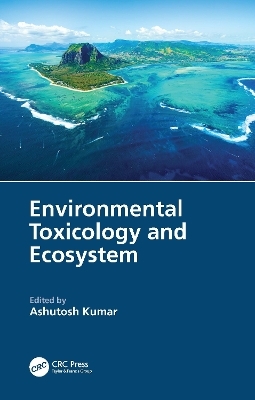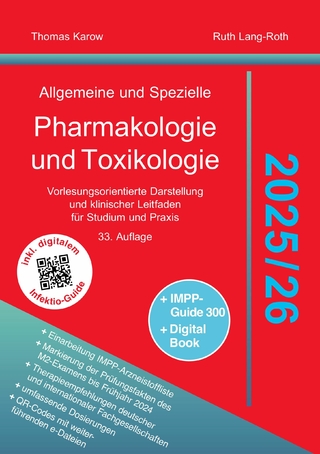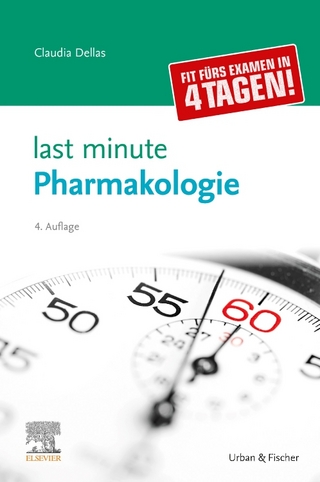
Environmental Toxicology and Ecosystem
CRC Press (Verlag)
978-1-032-15495-4 (ISBN)
This book covers varied aspects of environmental contaminants and their effect on the living organisms. It addresses the basics of ecotoxicity assessment, interaction of the abiotic or biotic factors with the novel chemical entities, and the fate of the natural organic matter upon interaction with new chemical entities. It further includes models for ecotoxicity studies and high-throughput approaches including OMICS. It provides an overview of the ecological risk assessment, regulatory toxicology guidelines, and possible roadmaps for protection of environmental health.
Features:
Discusses environmental toxicology facets and their effects on the ecosystem.
Provides an introduction of environmental toxicology keeping in view the paradigm shift on entry of novel materials in the environment.
Includes bioavailability, bioconcentration, and biomagnification of trophic transfer of pollutants.
Covers high-throughput approaches for ecotoxicity assessment.
Explores roadmaps for environmental protection and sustainable development.
This book is geared toward graduate students and researchers in Environmental Sciences and Engineering, Toxicology, and Ecology.
Ashutosh Kumar works as an Associate Professor in the Division of Biological and Life Sciences, School of Arts and Sciences, Ahmedabad University, Gujarat, India. He obtained his Master’s degree in Applied Microbiology from Vellore Institute of Technology, Vellore in 2008 and worked at CSIR-Indian Institute of Toxicology Research, Lucknow for his Doctorate degree and was involved in understanding the fate of nanomaterials on biological systems. Ashutosh is an exceptionally talented and motivated nanotechnology researcher who has the passion for understanding the effects of nanotechnology on the human life and environment at large. His deep understanding of the environment combined with his skills in nanotechnology and his versatile analytical understanding of different animal systems allowed him to make significant seminal contributions to the field of environmental nanotechnology. In past, Professor Kumar’s research work has been focused on development of new methods for nanomaterial safety in India. He has developed a novel method for the detection of uptake of nanoparticles in live cells for several generations. Additionally, he has been involved in studying the potential effect of nanoparticles on human cells, mice and aquatic organisms including zebrafish and Tetrahymena. His understanding of the role of abiotic factors in influencing the nanotechnology outcomes of biotic community is outstanding and by far an exemplar in the field. His study makes a significant contribution to understand the possible negative effects of novel technological solutions and the ways to mitigate them. He has supervised 27 master’s thesis, 5 doctoral thesis and published close to 60 international research articles, 23 book chapters and 3 edited books. His contribution in the field has led to the publication of multiple articles in high impact factor journals. Some of his contributions have also been extensively discussed in the policy documents such as "Guidance on the safety assessment of nanomaterials in cosmetics, prepared by Scientific Committee on Consumer Safety (SCCS), European union, 2019" and in "United Nations in the Asia-Pacific research and training network in Science, Technology & Innovation (STI) policies for sustainable development". The impact of his research and his contributions to the field are also evident from the awards won by Ashutosh at this young age. He has won the "Indian National Science Academy (INSA) Medal for Young Scientist 2014" in the area of Health Sciences while pursuing his PhD that is highly commendable. Similarly, he won the National Academy of Sciences India (NASI) - Young Scientist Platinum Jubilee Award (2015) in the field of Bio-medical, Molecular Biology and Biotechnology, DBT Young Investigator Award and vLife Science Best Publication Award.
1. Environmental Paradigm Change and Risk Assessment
2. Environmental and Ecotoxicological impacts of Engineered Nanomaterials
3. Toxicology of Metal Ions, Pesticides, Nanomaterials, and Microplastic
4. Natural Organic Matter: A Ubiquitous Adsorbent in Aquatic Systems to Probe Nanoparticles Behavior and Effects in Ecosystem
5. Analysis of Emerging Contaminant in Water Samples: Advances and Challenges
6. Advanced Techniques for Detection of Environmental Pollutant and Recent Progress
7. Impact of Heavy Metals on Different Ecosystems
8. Metabolism of Environmental Pollutants with Specific Reference to Pesticides, Endocrine Disrupters, and Mutagenic Pollutants
9. Bioavailability, Bioconcentration, and Biomagnification of Pollutants
10. High Throughput Approaches for Engineered Nanomaterial- Induced Ecotoxicity Assessment
11. Impact of Heavy Metals on Gut Microbial Ecosystem: Implications in Health and Disease
12. Roadmaps for Environmental Protection and Sustainable Development
| Erscheinungsdatum | 14.09.2024 |
|---|---|
| Zusatzinfo | 20 Tables, black and white; 30 Line drawings, black and white; 14 Halftones, black and white; 44 Illustrations, black and white |
| Verlagsort | London |
| Sprache | englisch |
| Maße | 156 x 234 mm |
| Gewicht | 562 g |
| Themenwelt | Studium ► 2. Studienabschnitt (Klinik) ► Pharmakologie / Toxikologie |
| Naturwissenschaften ► Chemie | |
| Technik ► Umwelttechnik / Biotechnologie | |
| ISBN-10 | 1-032-15495-0 / 1032154950 |
| ISBN-13 | 978-1-032-15495-4 / 9781032154954 |
| Zustand | Neuware |
| Haben Sie eine Frage zum Produkt? |
aus dem Bereich


